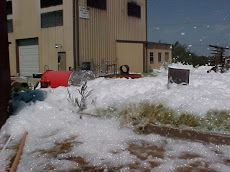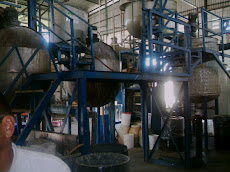Oil, Gas and Derivatives (Feedstocks)
Oil: A brief retreat from $80/ barrel this week yet today prices have pushed up considerably and pricing is once again fliriting with $80/ barrel.
Nat. Gas: Nat. Gas traded lower this week, starting around $5/ mmbtu getting as low as $4.75/ mmbtu and currently at $4.80/ mmbtu.
Ethylene: The ethylene market has been extremely active with February trading at $.565 cts/ lb, March at $.60 cts/ lb and April at $.5575 cts/ lb.
Benzene: Benzene has moved slightly lower this week ending at $3.27- $3.32/ gallon for March. We expect a slight decrease in the contract Benzene price from March.
Orthoxylene: March settled at $.47/ lb and based on nominations we expect a slight increase of 2-3 cpp for April.
Propylene: Refinery Grade Propylene is trading lower than the March settlement which increased a whopping 6.5 cpp. over January but Polmer grade is still trading in excess of the settlement. Ammonia: Pricing remains quiet at $275/ met ton yet forward price ideas are higher.
Chemicals
Methanol: Barge Pricing will "roll" into March at US$1.10/ gallon, spot has moved up to the high $.90's per gallon on news of an explosion at Petronas and other production issues. the Chinese holiday has ended and the spot market was not nearly as affected by the lack of demand during the holiday season as we saw last year.
Urea: Global pricing has escalated sharply as we enter a high demand season for Urea. Pricing has moved up steadily over the last few months.
Plasticizers: Feedstock pressure continues on price and another round if increases is slated for 3/1/10. DINP and DOP are considered tight as some operational issues are noted (2-EH) and Asian demand for ester and alcohol is ravenous.
Adipic Acid: Availability is limited pushing prices up and leaving some consumers struggling to keep inventories. A US major will bring down their only plant in the coming weeks further reducing availability in an already tight market.
Maleic Anhydride: Briquettes are selling at a premium if available. BASF's rationalization in Europe has radically affected the MA balance globally despite an overcapacity in NA. Molten material has moved on increased butane costs over the last couple of months yet due to the overcapacity spot deals are noted.
lunes, 1 de marzo de 2010
NEWS ON CHEMICAL PRICES
Suscribirse a:
Enviar comentarios (Atom)
Vistas de página en total
GREEN CHEMICALS
The Green Seal certification is granted by the organization with that name and has a great number of members contributing with the requirements to pass a raw material or a chemical product as "green". Generally for a material to be green, has to comply with a series of characteristics like: near neutral pH, low volatility, non combustible, non toxic to aquatic life, be biodegradable as measured by oxygen demand in accordance with the OECD definition.
Also the materials have to meet with toxicity and health requirements regarding inhalation, dermal and eye contact. There is also a specific list of materials that are prohibited or restricted from formulations, like ozone-depleting compounds and alkylphenol ethoxylates amongst others. Please go to http://www.greenseal.com/ for complete information on their requirements.
For information on current issues regarding green chemicals, see the blog from the Journalist Doris De Guzman, in the ICIS at: http://www.icis.com/blogs/green-chemicals/.
Certification is an important — and confusing — aspect of green cleaning. Third-party certification is available for products that meet standards set by Green Seal, EcoLogo, Energy Star, the Carpet & Rug Institute and others.
Manufacturers can also hire independent labs to determine whether a product is environmentally preferable and then place the manufacturer’s own eco-logo on the product; this is called self-certification. Finally, some manufacturers label a product with words like “sustainable,” “green,” or “earth friendly” without any third-party verification.
“The fact that there is not a single authoritative standard to go by adds to the confusion,” says Steven L. Mack M.Ed., director of buildings and grounds service for Ohio University, Athens, Ohio.
In www.happi.com of June 2008 edition, there is a report of Natural formulating markets that also emphasises the fact that registration of "green formulas" is very confused at present, due to lack of direction and unification of criteria and that some governmental instittion (in my opinion the EPA) should take part in this very important issue.
Also the materials have to meet with toxicity and health requirements regarding inhalation, dermal and eye contact. There is also a specific list of materials that are prohibited or restricted from formulations, like ozone-depleting compounds and alkylphenol ethoxylates amongst others. Please go to http://www.greenseal.com/ for complete information on their requirements.
For information on current issues regarding green chemicals, see the blog from the Journalist Doris De Guzman, in the ICIS at: http://www.icis.com/blogs/green-chemicals/.
Certification is an important — and confusing — aspect of green cleaning. Third-party certification is available for products that meet standards set by Green Seal, EcoLogo, Energy Star, the Carpet & Rug Institute and others.
Manufacturers can also hire independent labs to determine whether a product is environmentally preferable and then place the manufacturer’s own eco-logo on the product; this is called self-certification. Finally, some manufacturers label a product with words like “sustainable,” “green,” or “earth friendly” without any third-party verification.
“The fact that there is not a single authoritative standard to go by adds to the confusion,” says Steven L. Mack M.Ed., director of buildings and grounds service for Ohio University, Athens, Ohio.
In www.happi.com of June 2008 edition, there is a report of Natural formulating markets that also emphasises the fact that registration of "green formulas" is very confused at present, due to lack of direction and unification of criteria and that some governmental instittion (in my opinion the EPA) should take part in this very important issue.

















































No hay comentarios:
Publicar un comentario